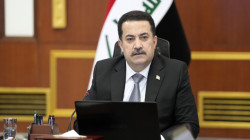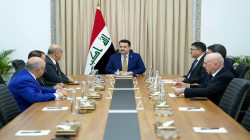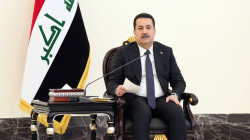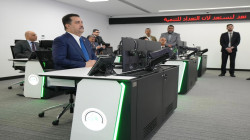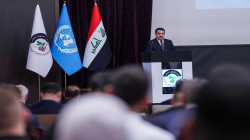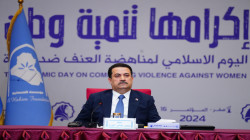Iraqi ministerial cabinet holds 30th regular session, approves school construction across many governorates
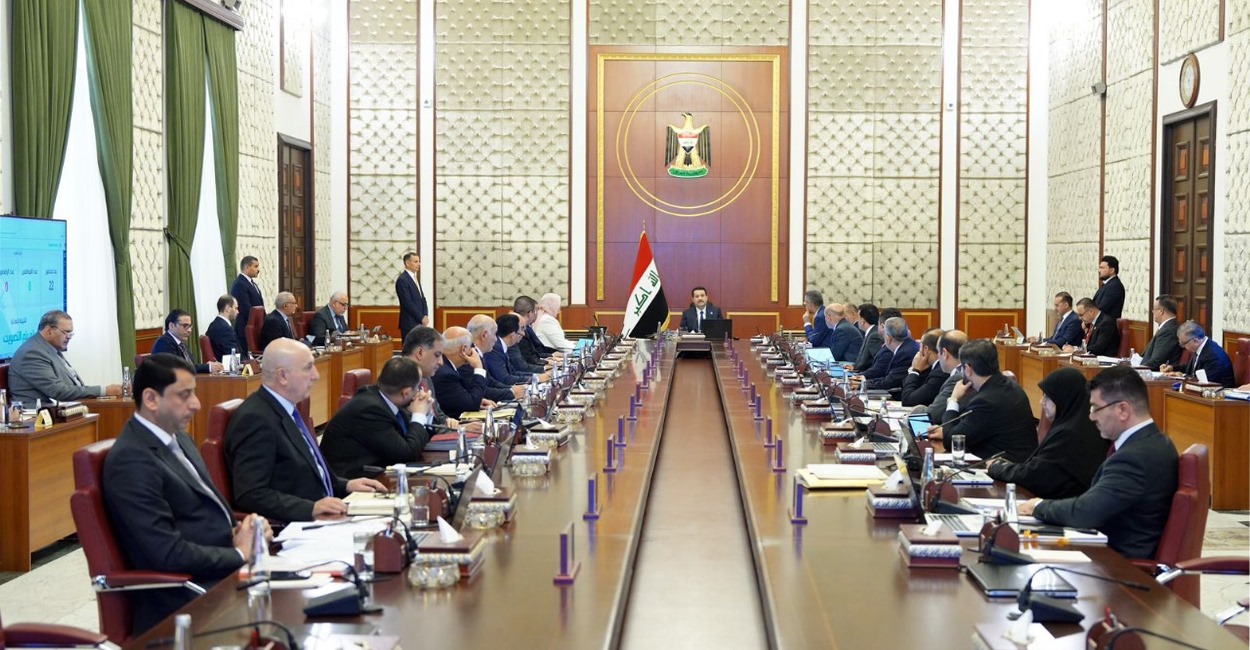
Shafaq News/ The Council of Ministers held its 30th regular session today, chaired by Prime Minister Mohammed Shia Al-Sudani.
As per a statement from Al-Sudani’s media office, the session discussed the country's general conditions, the implementation of government program priorities, key development and economic issues, and items on the agenda, resulting in necessary decisions.
“The Prime Minister opened the session by discussing the recent inauguration of several factories during his visit to the Defense Industries Company, highlighting private sector cooperation. He emphasized the importance of supporting national industry, particularly the capsule factory, a unique facility in the region.”
The statement continued, “The Prime Minister stressed that ministries and security agencies should rely on the Defense Industries Commission's products, which meet standards and are cost-effective, as a step towards achieving sovereignty. He noted that these industries could also support civil industries, such as the electric transformer rehabilitation factory.”
The Prime Minister also addressed his meeting with private mill owners, noting that the country relies heavily on imported flour, costing $750 million annually. He emphasized the need for government entities to support and utilize local production for the national food basket program.
The Prime Minister highlighted the need to activate non-oil economic sectors, requiring continuous decision-making and effort, and stressed the private sector's potential, urging support to create job opportunities.
With the upcoming Arbaeen pilgrimage, the Prime Minister directed intensifying efforts to ensure a smooth and successful event, including road preparations to Karbala and necessary support for provinces.
The Council continued with the agenda, making several key decisions:
1. Increased total cost for the land acquisition project (5686/1) in Mosul, Ministry of Justice.
2. Approved additional costs for the 2021 project to build 251 pre-fabricated concrete schools across provinces, excluding Baghdad.
3. Approved cost increases for various projects outlined in the Ministry of Planning's July 8, 2024, letter.
4. Increased contingency for the North Tikrit Bridge project.
5. Increased total cost for the Port General Hospital development project in Basra.
6. Increased contingency for the Hindiyah Sewage Plant project in Karbala and overall project cost.
7. Increased contingency and total cost for the National Human Rights Network Office project in Anbar.
8. Increased contingency and total cost for the paving project in Basra.
Regarding the electricity sector, the Council approved a contract addendum with BFT Company for designing, supplying, and implementing power transmission lines, emphasizing cost efficiency and compliance with financial limits. The Council also approved exceptions for the Ministry of Electricity to expedite container clearance and avoid delays during the summer peak, according to the statement.
“In supporting national industry, the Council approved recommendations for the dry gas projects for fertilizers, including pricing and supply commitments between the Ministries of Oil and Industry. The Council extended additional tariffs on certain imported goods to protect local production and approved measures to enhance the oil sector's economic transparency.”
In the framework of developing and supporting national industry, the Council approved the recommendations from the Dry Gas Committee for investment projects regarding the Khor Al-Zubair Fertilizer Plant (Southern Fertilizer Company) and the Abu Al-Khasib Fertilizer Project (under referral procedures), as well as new projects. The recommendations, considering the remarks of the Minister of Industry and Minerals, include:
1. Setting the price of dry gas supplied to the Southern Fertilizer Plant at 50 dinars per standard cubic meter for both the public company line and the public-private partnership line. For the attached projects, the gas price will be 75 dinars per standard cubic meter.
New projects will have a gas price determined by a pricing formula agreed upon by the Ministries of Oil and Industry and approved by the Ministerial Council for the Economy.
2. The Ministry of Oil will allocate and supply dry gas to new industrial projects planned in partnership with the private sector by public companies within the Ministry of Industry and Minerals. The supply quantities will be based on the projects' needs and a schedule, at prices ensuring economic feasibility. Quantities and prices will be regulated by an agreement between the Ministries of Oil and Industry and approved by the Ministerial Council for the Economy.
3. The Ministry of Industry and Minerals will re-evaluate the economic balance of existing and pending partnership contracts for new industrial projects, renegotiating with participating companies to achieve economically viable terms that ensure project continuation without harming either party.
The Council of Ministers also approved the recommendations from the Industrial Development and Organization Department of the Ministry of Industry and Minerals, based on the amended Iraqi Product Protection Law (11 of 2010), as follows:
1. Extending the imposition of an additional 65% customs duty on plastic ampoules imported to Iraq from all origins for four years without reduction.
2. Imposing an additional 30% customs duty on aluminum cans for soft drinks, juices, and energy drinks.
3. The Ministry of Finance/General Authority of Customs will apply these customs duties and periodically inform the Ministry of Industry and Minerals/Industrial Development and Organization Department about the quantities imported, the value of the additional fees on foreign products, and the exporting countries and importers.
4. The Ministry of Industry and Minerals will consider the increase in imports compared to the past three years to determine any unjustified rise, the ability of the complaining company to meet market demand, and the importance of the requested protection for the national economy. This decision will be effective 120 days after issuance.
In the oil sector, the Council approved the Ministerial Council for Energy's recommendation (24062 T) for 2024, raising the procurement and execution authority for the Oil Projects Company regarding the FCC Unit Connecting Pipeline Network project at Basra Refinery from 100 million dinars to 500 million dinars, based on the implementation instructions of the Federal General Budget Law of the Republic of Iraq (1 of 2023).
The Council also approved the recommendation of the Ministerial Council for the Economy (24225 Q) to endorse the report by the committee formed under the Diwani Order (24573 of 2024) issued by the Office of the Prime Minister. The report studies the economics of the oil and gas sector in Iraq to adopt and disclose the actual costs along the value chain based on economic principles.
For infrastructure, the Council allocated funds to develop visitor reception facilities at border points, including Zurbatiyah and Al-Shaib, and approved procedures for contracting with private transport companies for the Arbaeen pilgrimage.
The Council also approved several projects to improve air traffic management and school textbook printing and authorized repairs for the Al-Khalifa Mosque minaret. Finally, the Council approved exceptions for the Central Organization for Standardization and Quality Control to procure necessary laboratory equipment., as per the media office’s statement.
